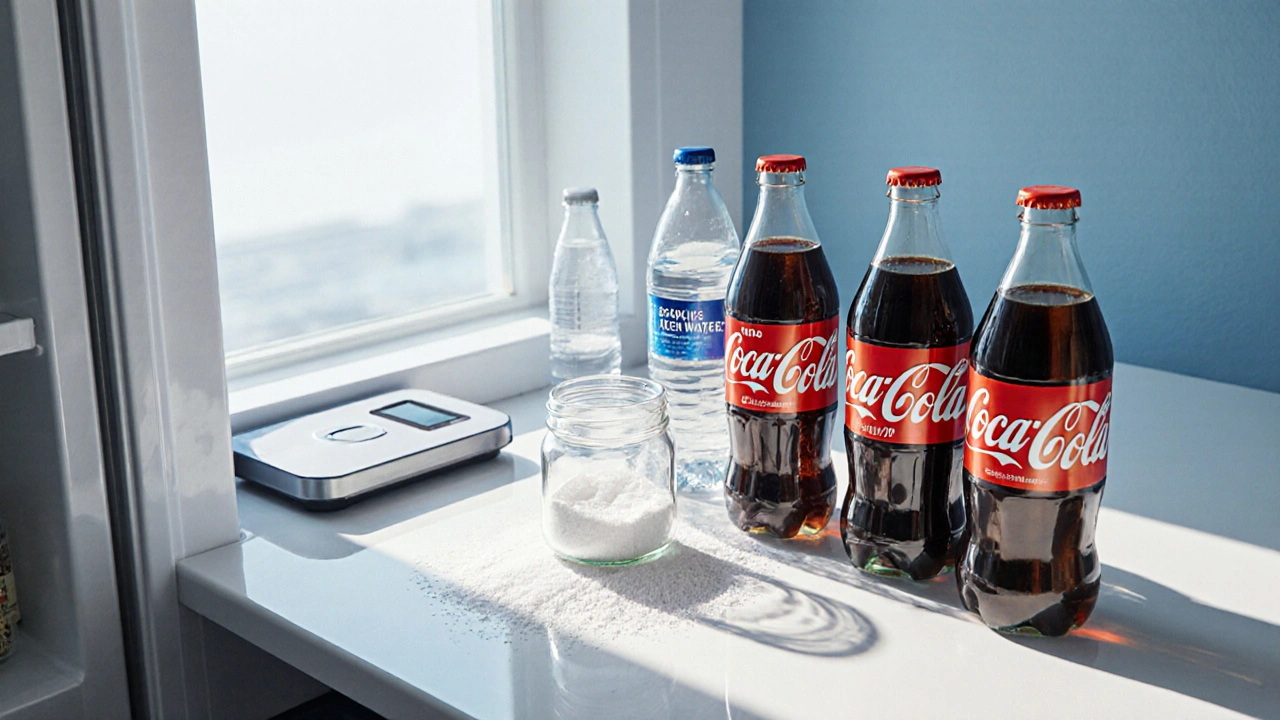Low Sugar Soda
When you hear low sugar soda, a carbonated beverage with little to no added sugar, usually sweetened with artificial substitutes. Also known as diet soda, it low sugar soda is a staple for anyone cutting calories while still craving fizz. It encompasses Artificial Sweetener, sugar alternatives like sucralose, aspartame or stevia that provide sweetness without the calories, and often requires Caffeine, a natural stimulant that adds a mild energy boost and sharpens focus. Together these ingredients create a drink that offers flavor, quick perk, and a lower glycemic impact than traditional sodas.
Why Choose Low Sugar Soda?
People pick low sugar soda for three main reasons: calorie control, sugar reduction, and convenience. A can of Coke Zero, for instance, delivers less than five calories and zero grams of sugar, yet it keeps the classic cola taste. Brands like Prime have launched zero‑sugar versions that swap out high‑fructose corn syrup for stevia, keeping the bright fruity profile without the sugar spike. Research shows swapping regular soda for a low‑sugar alternative can shave off 150‑200 calories a day, which adds up to noticeable weight management over weeks. At the same time, artificial sweeteners keep blood glucose stable, which is why diabetics often reach for diet sodas as a safe treat. The market reflects this shift: sales of low‑calorie sodas have grown 12% annually, while sugary soda sales dip. Energy‑drink fans also notice the trend; low‑calorie energy drinks blend the same caffeine punch with sugar‑free formulas, fitting into both workout recovery plans and daily office boosts.
While the perks are clear, it’s smart to stay aware of potential downsides. Some studies link heavy artificial‑sweetener use to altered gut microbiota, and excessive caffeine can trigger jitters or sleep issues. Choosing a soda with moderate caffeine (under 100 mg per can) and a sweetener you tolerate well—like stevia over aspartame—helps balance benefits and risks. Pair your low sugar soda with a balanced diet: hydrate with water, get nutrients from whole foods, and use soda as an occasional flavor lift rather than a primary fluid source. Below you’ll find a curated selection of articles that dig deeper into low‑calorie energy drinks, Coke Zero safety, Prime’s sugar‑free formula, and how to use these drinks wisely in sports, weight‑loss, and everyday life. Dive in to get the science, tips, and product reviews that will help you decide which low sugar soda fits your lifestyle best.
Discover which sodas are truly low‑calorie, low‑sugar, and nutritionally smarter. Learn to read labels, avoid common pitfalls, and pick the best soda for health in 2025.

